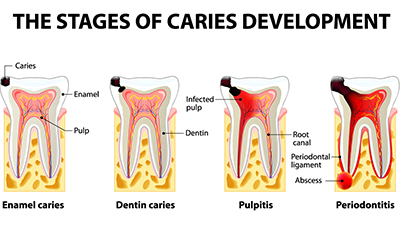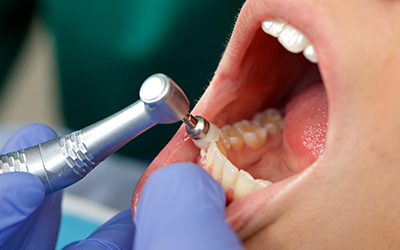Dental Extractions
Having a tooth extracted, or removed, is usually only reserved as a last resort in dentistry. We try to save the natural teeth if at all possible, but there are a few circumstances where a tooth extraction or multiple extractions may become necessary. These situations include pervasive tooth decay, the need to create more space in the mouth for orthodontic treatment, or if the wisdom teeth have become impacted.
Having a tooth removed is a very common procedure, but should only be performed as a last resort. If something can be done to save the tooth, we recommend taking that route. It may seem as though extraction is the cheaper or easier option, but you’ll end up needing to spend more time and money in restoring the lost tooth in the long run.
When a Tooth Extraction Becomes Necessary
Below are some of the main reasons for a tooth extraction:
- Pervasive Decay – Around two-thirds of all tooth extractions are performed because of deep decay. If decay has been allowed to affect the pulp, it may not be possible to save the tooth through root canal therapy. This is because root canals are only successful when the general structure of the tooth is still in good condition.
- Fractured Teeth – In most circumstances, Dr. Joshua Kelly will be able to save an injured tooth. However, there are certain instances where the fracture is either too deep or has occurred in a way that makes restoration impossible.
- Gum Disease or Periodontitis – If gum disease isn’t caught and treated early enough, it may develop into periodontitis. Once this stage has been reached, underlying bone may become so eroded that it is no longer able to hold the teeth securely in place. Poor bone density reduces the chance of saving the tooth, and extraction may become necessary.
- Orthodontic Treatment – Lastly, if you suffer from tooth crowding, it may be best to have a tooth extracted before undergoing orthodontic treatment.
Tooth Extraction Procedure
Prior to having your tooth extracted, X-Rays will be taken to check the condition of the tooth’s roots. If the roots are typical, then you’ll undergo a simple extraction. Local anesthetic will be used to make sure you don’t feel any pain, and then the tooth will be carefully removed by Dr. Kelly using dental forceps. You may feel pressure during the removal process, but it should not cause you any pain.
If there’s a problem with the tooth’s roots or if the tooth has not yet erupted (which may be the case with wisdom teeth), then a surgical extraction may be performed. In these situations, an incision is made in the gum tissue and the tooth will be removed. The gums will then be sutured.
For questions or concerns regarding tooth extractions, please don’t hesitate to contact Severance Dental, here in Severance, Colorado.
Our Blog
We don’t only care about your smile, We care about you! Follow us on our blog to review trending topic and resources for oral care.














